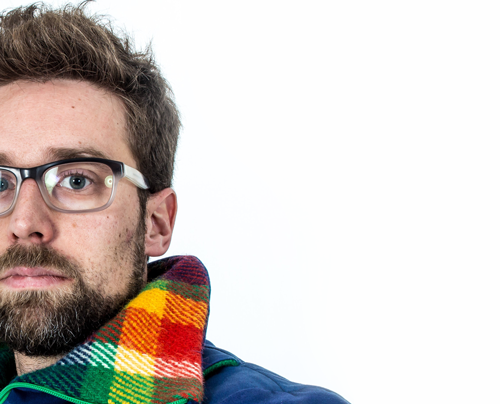Till Bovermann

Till Bovermann is an artist and scientist, working with the sensation of sound and interaction.
He studied Computer Science in the Natural Science, majoring in Robotics at Bielefeld University and worked at various institutes of Bielefeld University, Germany where he also received a PhD for his work on Tangible Auditory Interfaces.
As post-doctoral researcher on tangible and auditory interaction at the Media Lab of Aalto University, Finland, he initiated TAI-studio.org as an online space for scientific and artistic research on tangible and auditory interfaces.
Between 2014 and 2016, Till was principal investigator of the project “Design, Development and Dissemination of New Musical Instruments” (3DMIN) at UdK Berlin. Since 2018, he works for the art-science project “rotting sounds” at University for Applied Arts, Vienna.
Among other places, Till displayed his artistic work and performed with his self-build instruments at ZKM Karlsruhe, Queen Mary University London, Roter Salon Berlin, OT301 Amsterdam, ICMC Athens, Cartes Flux Festival Helsinki, Node+Code Frankfurt a.M..
Till co-curated the 3-day festival “Performing Sound, Playing Technology” at ZKM, Karlsuhe.
Till has been teaching at various international institutions, among others the Institute For Music And Media of the University of Music, Duesseldorf and the Institute for Time-based media, UdK Berlin.
Alongside his artistic and academic work, he develops software in and for SuperCollider.
Buffer Manipulation.
Buffers are free-form data structures in SuperCollider, consisting of a set number of float32 values that can be read and altered in realtime. Various unit generators such as delay lines, FFT chains, or hard-disk sampler make use of these containers to store data they use to compute their output.
Although semantics is necessary to “correctly” interpret and use the stored data, the containers themselves do not have any meta-information attached to them. It is even possible to access and re-write the data from a third UGen with breaking execution of the UGen graph.
Buffer Manipulation is the attempt to re-interpret data stored in Buffers with a set of standard UGens, without external knowledge of the data’s semantics.
Rotting sounds.
“Rotting sounds – Embracing the temporal deterioration of digital audio” is a 3-year project of artistic research funded by the Austrian Science Fund (FWF) and hosted by the University of Music and Performing Arts Vienna. The core project team consists of Thomas Grill (principal investigator and project manager), Till Bovermann (University of Applied Arts Vienna) and Almut Schilling (Academy of Fine Arts Vienna).
Most of today’s media output, be it audio or video, is produced and stored in the digital domain. Although digital data are adorned by the myth of lossless transmission and migration, everyday experience does prove the existence of degradation and, ultimately, data loss in various forms. This pertains to the physical nature of storage media and playback devicesas well as to media formats and software in the context of their technological infrastructure. The project strives to elaborate on the causes, mechanisms and effects of such deterioration, specifically in the context of digital audio.
Since degradation cannot be avoided on principle, it is our general aim to unearth latent degrees of freedom pertaining to the artistic practice in the omnipresence of decay.
